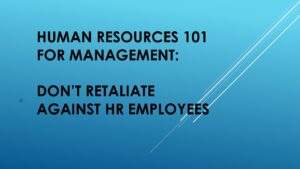 El Paso City Council recently proposed an ordinance aimed at limiting the type of documents subject to disclosure under open records requests. This was appropriately met with strong criticisms, and as a result the proposal was later withdrawn.
El Paso City Council recently proposed an ordinance aimed at limiting the type of documents subject to disclosure under open records requests. This was appropriately met with strong criticisms, and as a result the proposal was later withdrawn.
The Texas Public Information Act (PIA) gives the public the right to request and receive many types of government records. Texas law presumes that public documents are subject to disclosure unless a specific legal exception applies. While a valuable tool for all members of the public, this law can also be a great potential source of information for workers.
Many El Pasoans work for governmental employers, including state agencies, the city and county, as well as our local school districts. Often times, employers provide little or no information regarding non-selections, demotions, contract non-renewals, lay-offs or terminations. A PIA request can often help shed light on these employment decisions.
For example in a non-promotion, an employee can request a copy of the job announcement, applications and resumes of applicants, interview notes and scoring sheets. This information may help clarify if the selectee was in fact the best qualified. In a layoff, one may request the names, positions, seniority, ages and races of employees who were retained or laid off in a particular department. This may reveal if a particular class of persons (i.e. older workers) were laid off at a disproportionately high rate. Other employment related documents subject to disclosure include public employees’ performance evaluations, disciplinary actions, salary information and information regarding terminations.
Before you get a warm and fuzzy feeling that our state and local governments are open and transparent, be advised that many governmental entities will go to great lengths to delay or avoid disclosure of public information. The most common way is to assert a laundry list of legal exemptions that clearly do not apply, and then seek an opinion from the Texas Attorney General’s office on whether the documents needs to be produced. The governmental entity knows that it may take several months for the attorney general’s office to respond and issue a written opinion, and even if they lose, the governmental entity has succeeded in delaying the disclosure of this information.
Two El Paso Times articles revealed two other tactics used to avoid or delay producing documents. One article referenced a former local school district superintendent who allegedly ordered that audit reports remain “preliminary” to avoid disclosure. Under Sec. 552.022(a)(1) of the Texas Government Code, only “completed” reports and audits need to be disclosed. In another article, the other major El Paso school district responded to an open records request by a local journalist by stating that the requests were vague and needed to be narrowed. I call this the “playing dumb” defense.
Whether workplace decisions or policy decisions, open government requires public employers and elected officials to adhere to transparency. This right, however, will only exist as long as people are willing to demand it.
“I have no doubt that the nation has suffered more from undue secrecy than from undue disclosure. The government takes good care of itself.”
-David Schorr





